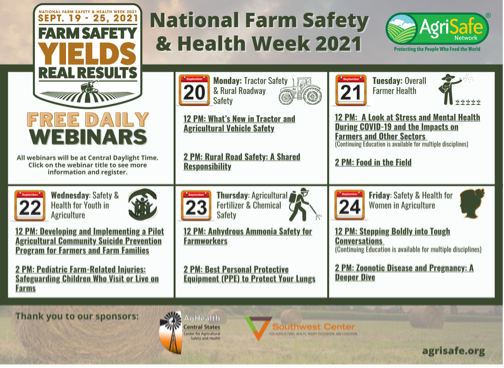Kathy Demchak, Senior Extension Associate, from Penn State University and Dr. Mengjun Hu, Small Fruit Pathologist, from the University of Maryland have published an excellent article on disease management recommendations for fall planted strawberry plugs. Please click here for more information.
Archives for September 2021
Vegetable Disease Update – 9/03/21
- Phytophthora blight is being reported in pepper and cucurbit crops. For more information on Phytophthora blight control please click here.
- Pepper anthracnose is being reported in southern New Jersey. For more information on pepper anthracnose please click here.
- Cucurbit downy mildew has been reported on cucumber (6/16/21), cantaloupe (6/22/21) and pumpkin (8/27/21) in southern New Jersey. For more information on CDM and its control please click here. To track the progress of CDM please visit the CDM forecasting website.
- No reports of Late blight in the region. To track the progress of Late blight in the US please click here.
- Cucurbit powdery mildew has been reported on summer squash, butternut, and spaghetti squash as we are now headed into the fall. Please scout fields on a regular basis and initiate a preventative fungicide program if you haven’t already done so. For more information on CPM control please click here.
- Bacterial leaf spot (BLS) continues to be reported on bell and non-bell peppers in southern New Jersey. For more information on our continuing survey for BLS and copper resistance detection in tomato and pepper please click here.
- For an update on Dickeya dianthicola research in potato please click here.
- The 2020/2021 Commercial Vegetable Production Recommendations Guide is available for free online.
- For a quick review on managing fungicide resistance development using tank mixes and fungicide rotations, and information on FRAC group 4, FRAC group 7, and FRAC group 3 and FRAC group 11 fungicides please click on hyperlinks.
National Farm Safety and Health Week: September 19-25, 2021

NFSHW webinars to be held 9/20-9/24/2021. Click here to register.
September precedes one of the busiest and most dangerous seasons of the year in agriculture – fall harvest time. For this reason, National Farm Safety and Health Week (NFSHW) is recognized annually during the third week of September. The theme this year is “Farm Safety Yields Real Results”.
AgriSafe will host two FREE webinars each day during NFSHW to highlight new technology, discuss incident prevention, and inform your decision-making and conversations. The webinars will feature discussion on each of the daily topics. Visit The National Education Center for Agricultural Safety website to register (scroll down to ‘Webinars’). Note that the webinar times are posted for Central Daylight Time.
Take an active role in keeping yourself and others safe this harvest season. Plan to join in on a webinar, encourage others to do the same, and take to social media to spread the message: “Farm Safety Yields Real Results”. Stay tuned to the Rutgers Agriculture and Natural Resources Facebook page for content to share each day during NFSHW!
Grower and Winemaker Town Hall: Questions from the Field and Cellar
Eastern Viticulture and Enology Forum has planned a virtual meeting on September 7th @ 3:00 PM ET. Here, regional viticulture and enology specialists will present a Grower and Winemaker Town Hall virtual meeting series to give seasonal updates and answer pre-submitted and live questions from grape and wine industry stakeholders.
The structure of these meetings depends on pre-submitted questions. Please email Hemant Gohil at gohil@njaes.rutgers.edu if you have any question. Please see below for the topic area suggestions for the September 7th meeting. [Read more…]
Food Safety for Flooded Farms
Flood waters can carry microbial and chemical contaminants that can be harmful to humans. Food crops should be assessed to determine if they have been affected by flooding surface water sources including rivers, lakes, or streams. These waters are the highest risk for contaminants. The biggest question to ask is has the edible portion of the crop been exposed to these waters? There is no way to ensure that food crops that have come in contact with contaminated flood waters are safe to eat. Food crops that have been exposed to flood waters should be destroyed so they do not enter market channels. For more information and guidance on how to handle crops and fields that have been flooded visit the Produce Safety Alliance Food Safety for Flooded Farms resource.
Vegetable IPM Update 09/01/21
Sweet Corn
European corn borer (ECB) moths are still appearing in several locations, but numbers remain very low, and feeding has only occasionally been reported. ECB population maps will resume if second flight catches rise to high enough numbers.
The highest nightly blacklight trap catches of ECB for the week ending 09/01/21 are as follows:
| Asbury 1 | Hillsborough 1 | Sergeantsville 1 |
| Califon 1 | Milford 1 | |
| Georgetown 1 | New Egypt 1 |
